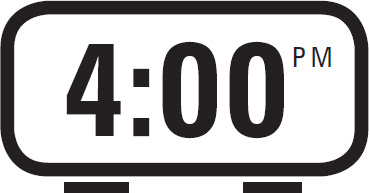

It’s 4:00 p.m., and unless you’re slammed, there’s a good chance you’ve handled your crises for the day and are settling into the afternoon’s downhill coast. Here’s another way to look at it: you’ve done most of the things that you know you have to do every day—you’ve reached the end of the tasks assigned by your expertise—and it’s now the time of day when you can choose to stagnate or push forward. There’s even another way to look at it: with your crises handled, you’ve finally got some breathing room for creativity and maybe even innovation. Here’s how to do it.
First, studies primarily by K. Anders Ericsson at Florida State University show there’s no magic in becoming an expert—it takes about ten thousand hours of practice to develop expertise at just about anything, including music, sports, chess, and highly skilled professions. If you break it down, that’s 250 weeks of practicing for forty hours a week, or just under five years of full-time practice. If you can only find four hours instead of eight to practice every weekday, spread the total time needed over ten years of part-time practice. If you want to play second violin in the Pittsburgh Symphony Orchestra, make a living as a country club golf pro, win more games of chess in Central Park than you lose, or manage the demands of a highly skilled job, start practicing today.
But what does it take to go even further? What if you want to be an artist rather than an artisan? What if you want to be Steve Jobs instead of a cog in the machinery of an IT department? Or a PGA Tour golfer rather than a country club pro? What sets apart a composer of music for car commercials from a composer who wins a Pulitzer? Or a scientist who takes the next step from a scientist who takes a great leap? Ten thousand hours of practice will make you an expert, but you’ll need something more if you want to be an innovator.
Psychologist Dean Keith Simonton, a leading creativity researcher, shows that this something may be equal parts logic, zeitgeist, and luck. For example, Simonton points to the work of computer programs like one called BACON (after Sir Francis Bacon, not after the wickedly delicious pork product), which uses logic alone to come up with “creative” ideas like Ohm’s law and Kepler’s third law of planetary motion. Instead of springing primordial from the ether, your innovative genius may spring from the ability to deduce new things logically from old information. The flip side is that “great scientists are precisely those who have the ability to dispense with logic,” Simonton writes. In other words, making deductions that turn out to be logical in hindsight may require thinking in a way that wouldn’t seem logical to most people at the outset.
Then there’s the perspective of zeitgeist, which imagines creative genius as the inevitable product of the times: only the late 1960s could have created Jimi Hendrix, and the fact that so many Nobel Prizes are shared between concurrent, independent discoverers shows that genius ideas may be floating in the cultural ether waiting to be grabbed.
Finally, there’s blind luck. Creative people stand on the shoulders of other creative people, but the only people we recognize as “innovators” are those who happen to be standing there with the innovation or discovery in hand when it finally comes to fruition. Did you think that James Watt invented the steam engine in 1781? That’s because Thomas Newcomen had made significant inroads in 1712, and Thomas Savery patented what he called a “steam pump” in 1698.
These three things, logic, zeitgeist, and luck, can help you innovate—say, by working to make logical conclusions from what has come before, or by living at the center of the zeitgeist (e.g., by moving to San Mateo if you make software or to Portland, Oregon, if you make beer).
There’s one more thing you gotta do if you want to innovate, and we hinted at it in the beginning: you have to avoid the trap of your own expertise and maintain flexibility even once your experience shows you the “best” ways to do things. It’s not easy. For example, when an obvious “best” chess move exists, expert players may miss innovative options, and when medical symptoms present in classic clusters, doctors may miss a non-routine diagnosis. In these cases, it’s the very fact of expertise that squishes innovation.
Even if some combination of logic, zeitgeist, and chance is in your favor, innovation still requires constantly asking what’s next, even when you think you already know the answer.
Creativity + Practical Intelligence =
Innovation
Creativity and innovation aren’t the same thing. Creativity is something that you can do in the privacy of your own basement; innovation is what happens when creativity connects with an audience. And studies show an ingredient that makes a major difference between the two: in addition to creativity, innovation requires practical intelligence. Only by understanding how to reach people can creativity become innovation.